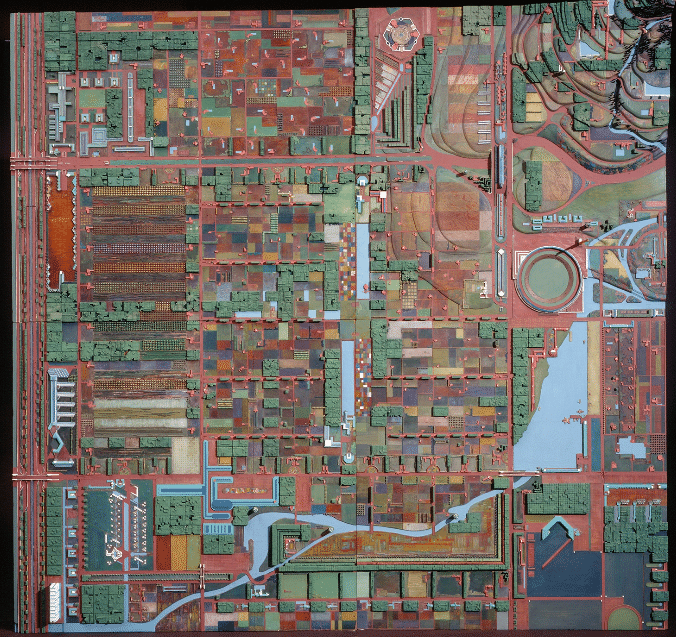To Be a Specialist?

Broadacre City, Frank Lloyd Wright.
One can see how hyperspecialization can go wrong. This was my concern as I entered my sophomore year at college. With smarter people all around me, I feel the need to catch up and compete with them. I thought that one of the ways to do that was to become specialized in something and so I desperately searched for one. But one day, after weeks of searching at the beginning of this semester, I woke up exhausted. That was when I started to reconsider whether I really want to become a one-trick-pony.
I think specialization is important. But at the same time, I don't think I am a specialist. By nature, I think colleges will gently (or not really) push you into forging your weapon, your specialty, to tackle real-world problems. But throughout my life, I have never been prodigious at one thing. I was lucky that my parents didn't really mind it. And because of that, I developed into someone who's more of a generalist – someone who likes reading about a variety of things without becoming an expert in anything.
A lot of the time, I feel disadvantaged when comparing myself to others. But when I look into myself, I am happier jumping from one topic to the other. In interpreting Zisi's Doctrine of Half-and-Half, Hokkien Chinese writer Lin Yutang argued that a well-ordered life falls somewhere between extreme dichotomies, similar to the Buddhist middle way:
It is the spirit of sweet reasonableness, arriving at a perfect balance between the action and inaction, shown in the ideal of a man living in half-frame and semi-obscurity; half-lazily active and half-actively lazy; not so poor that he cannot pay his rent, and not so rich that he doesn't have to work a little or couldn't wish to have slightly more to help his friends; who plays the piano, but only well enough for his most intimate friends to hear, and chiefly to please himself; who collects, but just enough to load his mantelpiece; who reads, but not too hard; learns a lot but does not become a specialist; writes, but has his correspondence to the Times half of the time rejected and half of the time published – in short, it is that ideal of middle-class life which I believe to be the sanest ideal of life ever discovered by the Chinese (Yutang, 1939, p.133).
While he is mostly talking about a well-balanced life, it is connected to my thoughts on being a generalist. Instead of just diving deep into one field, a Hedgehog in Isaiah Berlin's analogy, I want to taste a wide variety of experiences and bits of knowledge: Berlin's Fox. I don't understand how the world works or perhaps never will, but presently, I gain the most satisfaction from jumping around different subjects. I don't know where it will take me, but hopefully, I will be able to integrate all the things I have learned to do something meaningful later on.
* I have written this post as a reflection on reading David Epstein's Range. The book argues that innovation comes from integrating different fields of study. Making analogies between them will help us truly understand the world. He provides historical evidence where generalists thrived: Roger Federer, Charles Darwin, Van Gogh, etc. Feeling inspired by this, I want to hold off my project that looks into climate change in Thailand and expand to read about random things. I will make it a rule to read books that are in different fields from the one that I read last.
Great read again. As an artist this topic comes up quite often because there is a tendency to sharpen your sword and do nothing else, when in reality living life is what gives you something worth cutting in the first place. Cross discipline training is extremely important.
ReplyDelete